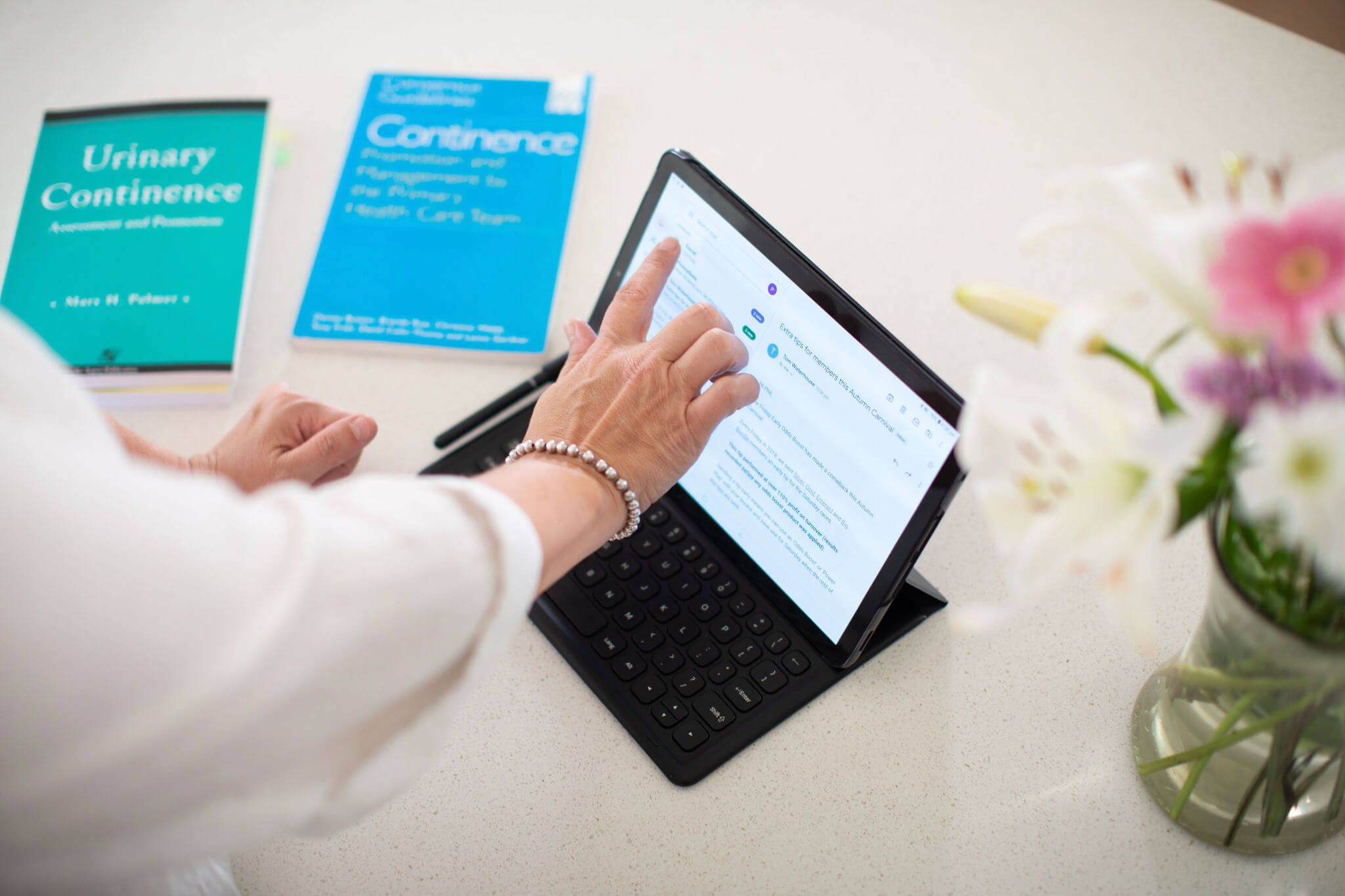Good healthy bladder & bowel habits can have a significant impact on our lives, & small changes in our daily habits can help prevent, or at least improve, urinary incontinence & faecal incontinence. By taking just a few of the following healthy steps in the right direction, you can make a positive impact on your bladder & bowel health.
1. Drink well
While our tendency when dealing with bladder & bowel problems might be to restrict our liquid intake, this is actually the opposite of what we should do.
• Aim to drink an adequate amount of fluid a day, unless otherwise advised by your doctor
• Drink more fluids (preferably water) if the weather is hot, or if you are exercising; &
• Cut down on alcohol, fizzy drinks & drinks with caffeine in them, as they irritate the bladder.
2. Eat a healthy diet
Eating well can make a world of difference to how we feel & how our bodies operate.
• Eat plenty of fibre, this improves bowel function by absorbing water & adding bulk to your bowel motions. Bulky stools keep things moving through your bowel to avoid constipation. Fibre is found in many foods including multigrain or whole grain breads, cereals & cereal products, fruit, vegetables, legumes, nuts & seeds
• Eat 2 servings of fruit, 5 servings of vegetables & 5 servings of cereals/(wholemeal) breads each day.
3. Lead a positive lifestyle
• Maintain an ideal body weight, excess body fat strains the pelvic floor and can lead to bladder & bowel control problems.
• Stop smoking. Chronic (long-term) coughing associated with smoking can weaken the muscles of your pelvic floor & lead to bladder & bowel control problems.
4. Get active
Making a move in the right direction, not matter how small, can make a big difference.
• Aim to exercise for 30 minutes most days. Exercise stimulates movement of the bowel, & even gentle exercise, like walking helps
• Do your pelvic floor muscle exercises regularly. Obesity, pregnancy, childbirth, regular heavy lifting & a chronic cough can all weaken the pelvic floor, but you can strengthen these muscles with specific exercises.
5. Practice good toilet habits
• Go to the toilet when you get the urge to open your bowels, as this is the most effective time to completely empty them. Most people get the urge first thing in the morning or following a meal when eating has stimulated the bowel.
• Adopt the best posture for sitting on the toilet. When you sit on the toilet, place your elbows on your knees, lean forward & support your feet with a footstool. This helps to fully relax your pelvic floor and sphincter muscles.
• Avoid constipation, as this affects both bladder & bowel function. If you often strain to move your bowels, the pelvic floor stretches & weakens over time, impacting bladder control.

